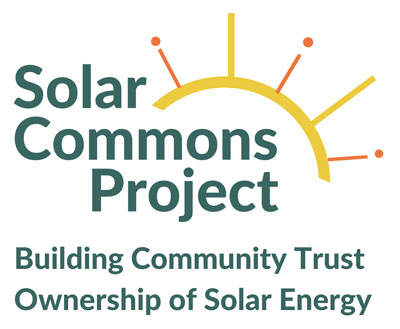The twenty-first century energy transition provides an opportunity to bring more equitable property forms to our decarbonized energy infrastructure. Customary and informal laws studied by anthropologists offer creative legal possibilities. Trust law is the oldest form of property in the English common law tradition. It arose as a vehicle for landless peasants to get around the dominant feudal property regime that allowed only kings and lords to own land. Trusts became a vehicle to own not the land, but the equitable title to benefits in the land. Solar Commons research adapts trust law so that the benefits of solar energy can be owned and peer governed by low-wealth communities to support their community-building efforts.
Solar Commons researchers use a “living lab” methodology to co-design, with community partners, the trust creation, agreement, and peer governance processes and tools. These formal and informal legal devices are then turned into templates, standards, DIY steps and digital dashboards that will allow Solar Commons to freely iterate throughout the US.
Current Research
Over the next five years, Solar Commons researchers are working with community partners and funders to build and study best practices for several 500kW Solar Commons in Minnesota and Arizona.
Ten Year Research Plan
Through Solar Commons templates, tools and demonstration projects, researchers and community partners will have created a robust economic institution for the “commons sector” of the United States. Fit for donors or community financing, Solar Commons will be embedded in the infrastructure of the 21st century energy transition, an engine for peer-governed common wealth that funds the reparative and life-sustaining work of commoning.
Commons Research Directions
We look forward to the diverse collaborations that communities and commons scholars will bring to our endeavors.
Selected Publications, Competition Entries & Community Capacity Building Reports
Milun, K., & Pochtaruk, M. (2022, June). The northland solar commons: An industry, university and tribal community partnership to use the sun’s common wealth for reparative justice in Northern Minnesota. In Proceedings of the American Solar Energy Society National Conference (pp. 123-127). Cham: Springer International Publishing.


